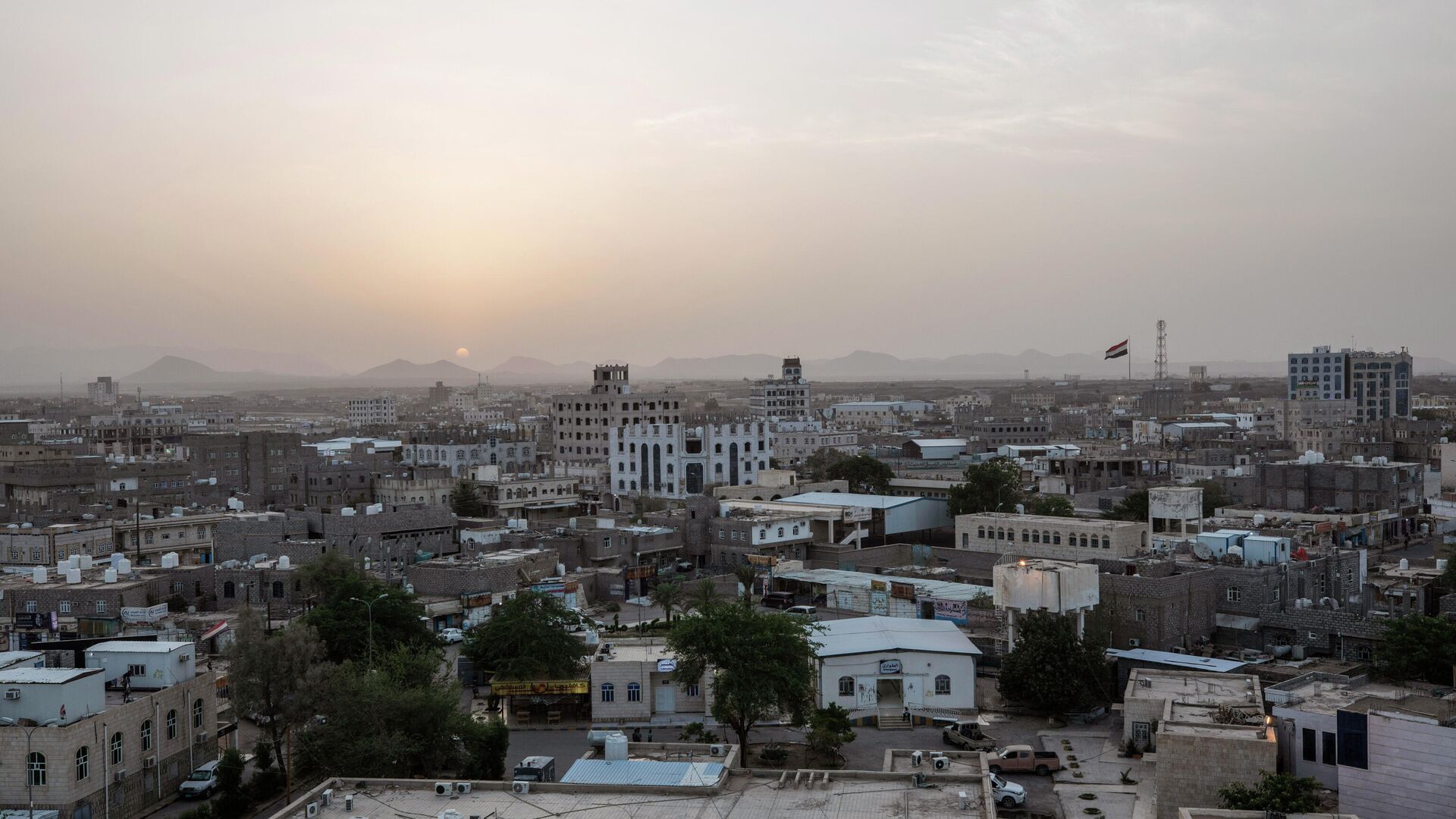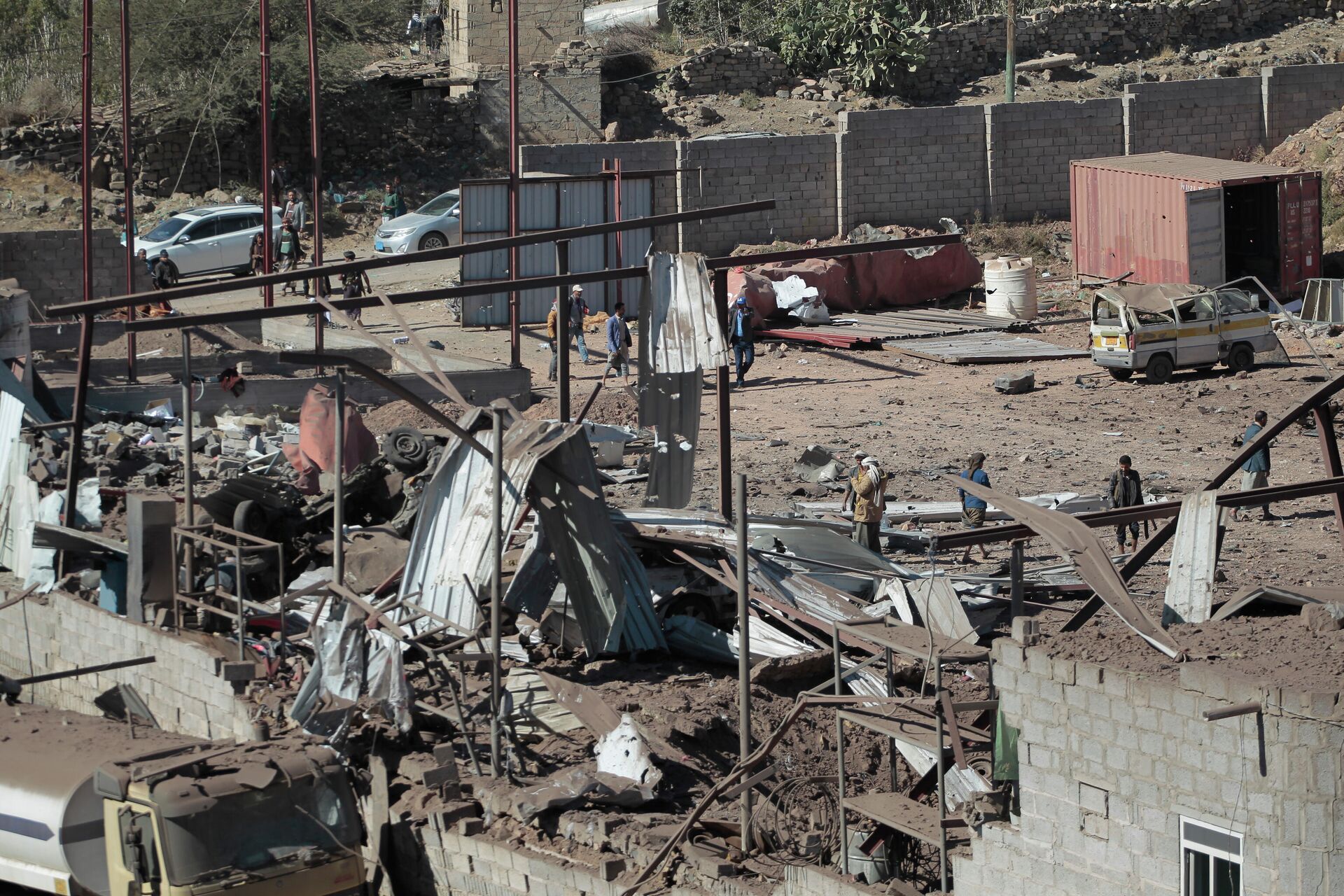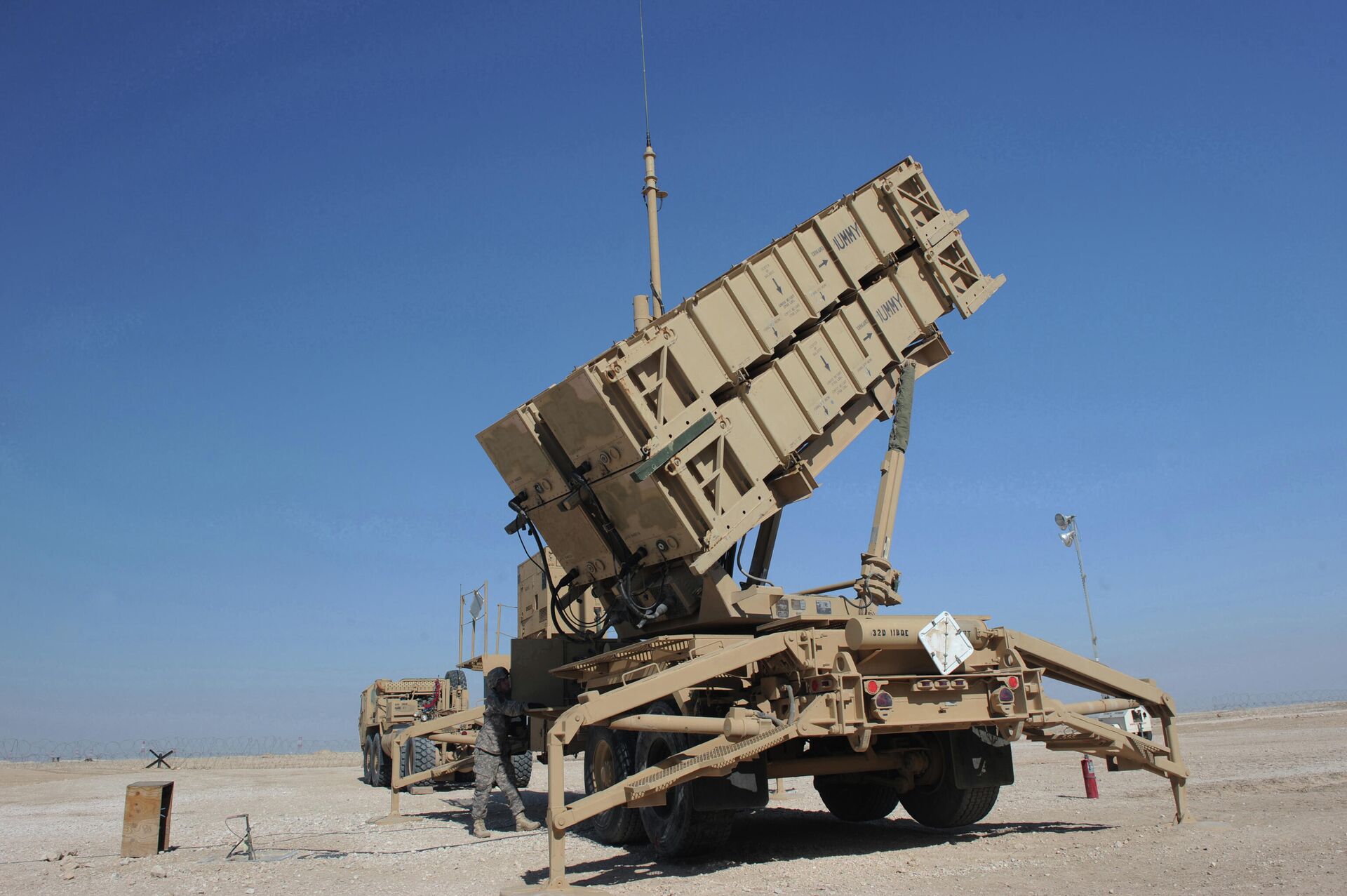Houthis Claim ‘Major Collapse’ of Coalition Forces Defending Ma’rib, Predict City’s Capture in Days

© AP Photo / Nariman El-Mofty
Subscribe
After more than ten months of fighting, Yemen’s Houthi movement may be poised to capture the final pockets of Ma’rib still defended by forces loyal to Yemeni President Abdrabbuh Mansour Hadi. Amid the latest offensive, Riyadh has launched a new air blitz, bombing targets in Ma’rib, Jouf, and Sana’a.
Houthi forces have captured Jabal al-Balaq al-Awsat, a mountain range with a commanding view over the southeastern approach to Ma’rib, “field sources” told Al-Mayadeen on Wednesday.
Muhammad Bukhaiti, a member of the political council for Ansarallah, the Houthis’ formal name, confirmed to the Lebanese outlet the peak’s capture, saying the "decisive hours are close in Marib.”
"The defeat of the forces of aggression in Ma'rib means their defeat on the rest of the fronts,” Buhkaiti added, referring to the Saudi-led coalition that has fought tooth and nail to hold onto Ma’rib, its last stronghold in northern Yemen. The city is home to an estimated 3 million people, one-third of whom fled there as refugees during an earlier part of the war, when the front lines were far away.
In turn, the Deputy Foreign Minister in the Sana'a government, Hussein Al-Azi, said on Twitter on Wednesday that mercenary camps in the region were accelerating in their collapse and “their great leaders have begun to communicate with us.” He called on Yemenis to unite against “external aggression.”
“The issue of settling al-Qaeda* in our country or appointing corrupt rulers over Yemen by an external will is no longer acceptable,” Azi added.
“Peace, brothers, is a logical process that necessarily requires respect for the sacrifices of peoples for their security and freedom and for the independence and sovereignty of their countries,” he said. “Undoubtedly, Sana'a is ready to make all sincere commitments with respect to the sovereignty, security and interests of all those who exchange it with the same commitment and respect.”
On Tuesday, the Saudi-led coalition said it had carried out "precision strikes on legitimate military targets in Sana’a” over the previous 24 hours, striking targets in Ma’rib and Jouf, as well. A military official told the Sana’a-based Yemen News Agency (Saba) that 38 Saudi airstrikes had been counted.
The attacks were claimed to be in response to a volley of ballistic missiles fired by the Houthis at the Saudi Aramco oil facility in Jeddah and at the Saudi Defense Ministry headquarters in Riyadh.

People inspect the site of airstrikes by a Saudi-led coalition on a workshop, in Sanaa, Yemen, Sunday, Dec. 5, 2021. The coalition fighting Iran-backed rebels in Yemen accelerated airstrikes on the capital and elsewhere in the conflict-stricken country in recent weeks, as government forces advanced in the west coast and the key province of Marib, officials said Sunday.
© AP Photo / Hani Mohammed
However, Riyadh has waged a monthslong bombing campaign in Ma’rib and Shabwa governorates aimed at blunting the Houthi offensive, which fanned out in the countryside around Ma’rib after fighting in the city got bogged down in the spring. According to Houthi military spokesman Yahya Saree, the ballistic missile attack was itself motivated by recent Saudi attacks.
According to a November 20 estimate by Muammar Al-Eryani, the Houthi information minister, 15,000 Houthi fighters have fallen in Ma’rib since March. If the Houthis are able to totally evict coalition forces from Ma’rib, Hadi’s government in the west will be limited to a strip along the southern coast between 40 and 70 miles deep. East of Ma’rib lies the vast Rub’ al-Khali desert, which is sparsely populated.
US Rushes to Rearm Saudis
The Saudi air blitz, and the furious response it’s provoked from the Houthis, whose missiles have reached deeper into Saudi territory in recent years, has come close to exhausting the Saudi arms supply. According to a Tuesday report by the Wall Street Journal, “its arsenal of interceptors - missiles used to shoot down airborne weapons - has fallen dangerously low.”
In February, after US President Joe Biden took office, the US pledged to stop selling the Saudi alliance offensive weapons that could be used in Yemen. However, it has continued to supply the kingdom with defensive weapons, including a $650 million sale of Advanced Medium Range Air-to-Air Missiles (AMRAAM) approved by the Pentagon in October.
On Wednesday, an effort by a handful of anti-war senators to block the sale was defeated, paving the way for the deal to be completed.
“Exporting more missiles to Saudi Arabia does nothing but further this conflict and pour gasoline on already raging fires,” said US Sen. Bernie Sanders (I-VT) in a speech on the Senate floor.
“We could stop this war if we really had the will to do it,” US Sen. Rand Paul (R-KY) added. “All of America should be appalled at the humanitarian disaster caused by the Saudi blockade of Yemen.”

Army Spc. Timothy Jones operates a Patriot missile battery in Southwest Asia, Feb. 8, 2010. The Defense Department announced Oct. 11, 2019, that it will deploy two Patriot missile batteries to Saudi Arabia.
Worst Humanitarian Crisis
The war started in 2015 after Hadi fled from Sana’a to Riyadh seeking Saudi help returning to power. The rising Houthi movement, a Zaidi Shiite community from the northern area near the Saudi border, appeared at the head of a mass movement furious over austerity measures implemented by Hadi’s government and a proposed federalization plan the Houthis said would amplify poverty instead of alleviating it.
The Saudi coalition, which includes the United Arab Emirates and the United States and in the past also included Sudan, Morocco, has implemented a near-total blockade of the country while waging an extensive bombing campaign inside it. They have also supported a wide array of rebel groups with weapons and money, and Western-made weapons sold to Riyadh and Abu Dhabi have been spotted in many in their employ, including Al-Qaeda in the Arabian Peninsula (AQAP).
The combined effect has created what the United Nations referred to as the world’s worst humanitarian crisis. UN estimates from late November put the war’s death toll at 377,000, the majority of whom have died from noncombat causes such as famine, diseases like cholera and COVID-19, a lack of access to adequate food, water, or medicine, and other infrastructure-related causes.
*A terrorist group outlawed in Russia and many other countries


